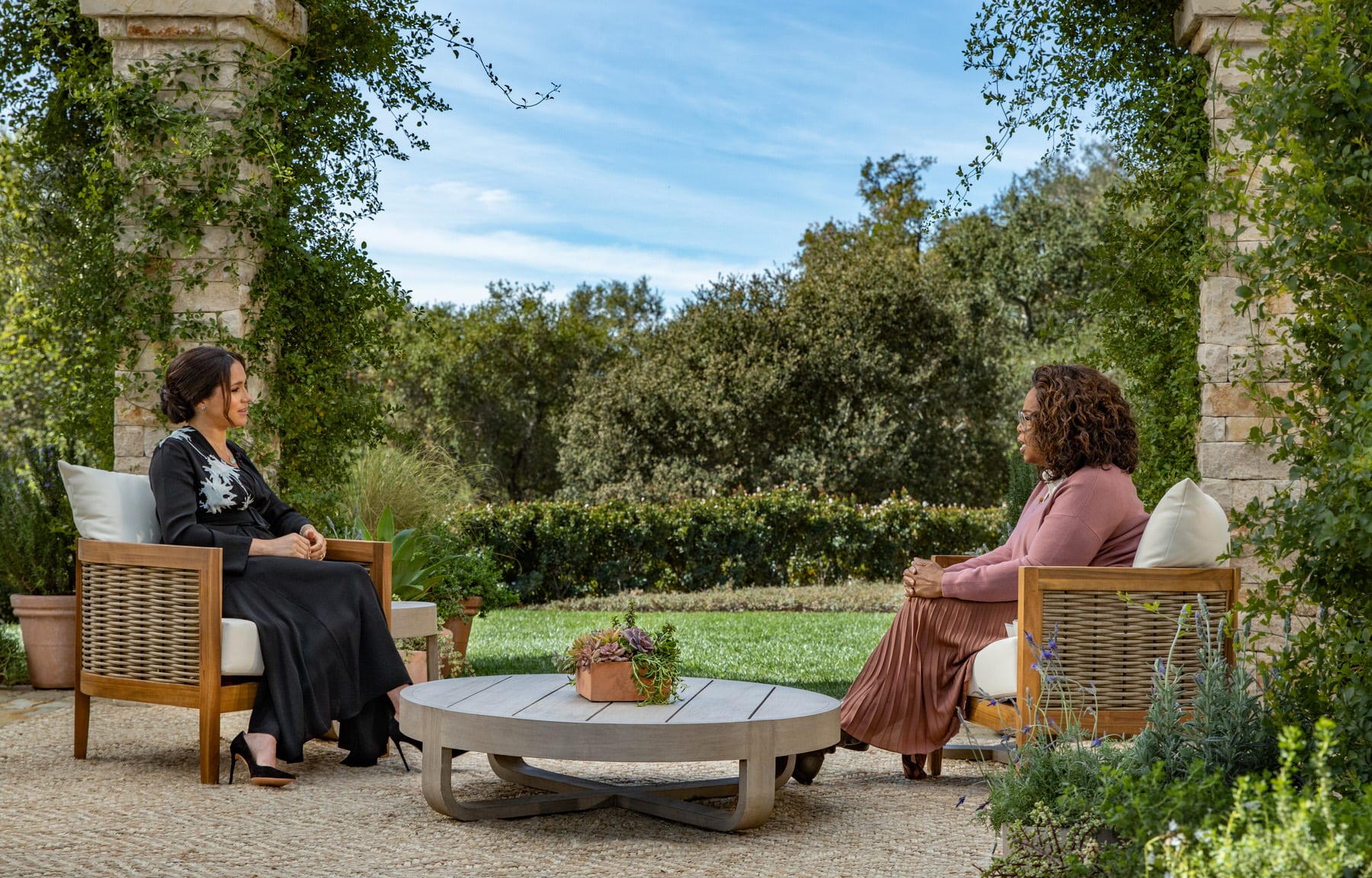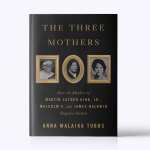Meghan, the Duchess of Sussex, and Prince Harry sat down with Oprah Winfrey in a gripping interview that illustrated why the couple sought distance from the business of royalty. Meghan spoke openly about issues of race, mental well-being and the royal family dynamic for the first time, and many Black women responded in solidarity.
Winfrey gasped when Meghan said someone in the royal family expressed concern to Harry about what color their son, Archie, would be, as the duchess is half Black. Meghan told of struggling with suicidal thoughts and a lack of support from the royal family. They talked about the kingdom revoking their security detail this year despite no change in the level of threats against their lives. The couple used the money Princess Diana left for Harry to relocate to Southern California.
On Tuesday, a statement on behalf of Queen Elizabeth II said the whole family was saddened to learn how challenging the last few years had been for Harry and Meghan, and that the issues of race were concerning. Winfrey clarified the morning after the interview aired that Harry said it was neither the queen nor her husband, Philip, who made the colorist remarks.
Since leaving the U.K., Harry and Meghan haven’t spoken much to the public. In one of her first sit-down conversations since returning to the United States, Meghan told The 19th in August, “It’s good to be home.” Three months later, she penned an article in the New York Times, disclosing she experienced a miscarriage. She’s now pregnant again and expecting a girl, the couple shared with Winfrey.
The two-hour TV special, which 17 million Americans watched live, provided a window into Meghan and Harry’s ultimate decision to step back.
“My regret is believing them when they said I would be protected,” Meghan said in the interview. “I believed that. And I regret believing that because I think, had I really seen that that wasn’t happening, I would have been able to do more. But I think I wasn’t supposed to see it. I wasn’t supposed to know.”
Kacie Armstrong, a 47-year-old Black woman from Ohio, related to Meghan’s struggle asking for help and being turned away. Armstrong remembers grappling with the anxiety and stress that pregnancy brought up for her, as a Black woman.
“To know that she was under all this stress … and then to take the steps to say I need help, and to be denied that help,” Armstrong said. “It was just horrifying.”
Armstrong, who works as a librarian, recently read “The Three Mothers” and was deeply disappointed by the treatment of Malcolm X’s mother, Louise Little, by the medical field. She is not surprised by the royal family’s treatment of Meghan’s mental health crisis, she says.
“Historically, Black women have been denied proper care. … It just brings up the memories of Sandra Bland and Breonna Taylor,” Armstrong said. “No one considered their pain. No one considered their emotions.”
Similarly, the racism didn’t surprise Nono Osuji, 39, who’s based in Texas and whose family is from Nigeria. “It just is frustrating,” she said. The interview with Winfrey painted a reality that Osuji described as “deceitful.” The wedding, in particular, offered the perception that Meghan was welcomed, Osuji said. Bishop Michael Curry, the first African American to preside over the Episcopal Church, preached at the ceremony, and an all-Black gospel choir sang for the couple.
“That wedding looked so diverse and inclusive,” she said. “And like many Black people know, inclusion doesn’t always mean actual acceptance.”
Laurie Bertram Roberts, 42, who identifies as a biracial Black person, said Meghan’s story reminded her of so many “overt conversations” she overheard her grandmother, who is White, having about her skin color and keeping Roberts out of the sun so she wouldn’t get “too dark.”
“It was years before I connected her overt anti-blackness in telling me over and over as a young girl that I looked like a ‘white girl with a tan,’” Roberts said in a message. “That directly led to my mother firmly having to tell me, ‘That’s not true, you’re Black and it’s not only OK, you’re beautiful as you are.’”
Roberts added that in her experience, many White partners and parents don’t stand up to their White family and instead ask the BIPOC person to accept and normalize abuse. In the interview, Harry told Winfrey that he had to do his own learning about race because, initially, he hadn’t thought of how his family and the tabloids would treat Meghan because of her race.
“But my upbringing in the system, of which I was brought up in and what I’ve been exposed to, I wasn’t aware of it to start with,” Harry said. “But, my God, it doesn’t take very long to suddenly become aware of it.”
Roberts, who said she’s “ready for this conversation” the interview sparked about race and family, understands why many Black people will have varying reactions to the interview but hopes one thing resonates with everyone.
“We can’t take class out of it or colonialism,” Roberts wrote. “At its heart, it’s an age-old narrative of how there’s never an acceptable level of Black you can be in white supremacy. Period.”





